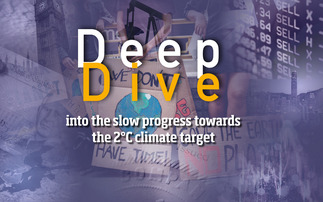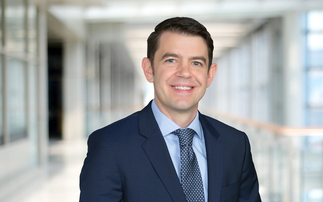
Royal London Asset Management’s Mike Fox, on where we might be in the economic cycle and what impact – if any – that has on his sustainable investing
"Our view is that we're in the latter stages of a bull market which began in 2009," says Mike Fox, RLAM's Head of Sustainable Investments and a veteran, multicycle sustainable investor. But he's not saying the end of the bull market is imminent.
"There's lots of liquidity around, and we are not where we were in 2007-2009, when the world was falling apart. There's enough caution out there, from enough people, that I don't think we're at the market top - though predictions can be dangerous."
"The latter stages of bull markets are often the most profitable but they're the most difficult as well in terms of timing," he says. "What typically happens in the last year or two is that you get a capitulation of the more downbeat views about how the world is evolving - that moment when the last bear becomes a bull."
"If in 12 months' time, inflation - or stagflation - has not proven to be a problem, the market narrative may be that we can conquer anything: ‘If we can get through Covid, while saving the economy, what can possibly hurt us?' That might be the moment to really start worrying."
Expensive assets
Asset prices are arguably already high, however, so how does that affect his investment decisions? "As assets get more expensive, you have to have much more conviction they can grow for longer," he says.
"It's fortunate that versus even 18 months ago, pre-pandemic, we do actually think that certain assets are much more likely to grow for much longer, following the pandemic's acceleration of various secular trends that we can see around us such as digitalisation. The increase in valuations is, we think, in some areas being offset by a genuine increase in prospects."
That belief relates to what Fox says was the pandemic's biggest surprise for investors. "I think the most valuable piece of information we could have all had in March 2020 was that in aggregate corporate profitability will be higher because of the pandemic. Which is a bit like a double take - when you write it down you've got to make sure you've not made a typo. Of course, the effect has been very mixed - technology and healthcare are much bigger and more profitable than airlines and restaurants - but it's a critical point and offers reassurance that some of the market movement may have been justified."
Fundamental forces
While government support has been vital to many industries, he thinks more fundamental economic forces are playing out. "If you think about what's happened with cloud computing, there is no business that we know of that has truly adopted technology to its optimum level - not one. Inertia is the biggest competitor to change and to deal with that you need dislocating events - and that's really that's what the pandemic was."
Chief technology officers who were thinking before the pandemic that ‘maybe I should adopt the cloud', he says, have now realised that migration is critical in terms of risk managing future disruptions, cutting costs, and facilitating the likely long-term swing towards more flexible working. Technology adoption could fuel productivity gains in a wider set of industries, he feels, aside from the benefit to tech firms.
Longer horizons
There are many shorter-term tail risks, including the advent of new Covid-19 variants, inflation, geopolitical risks and developments within China. "But taking a 10-20 year view, a whole bunch of industries are going to look very, very different. Society is likely to become much less carbon intensive, more healthcare oriented, and more digitised. In that timeline, market and economic cycles will turn but, in the end, we largely choose not to invest around those. We prefer to invest in what we think are these longer term environmental and social changes with a view that this will serve us better than trying to time things."
Click here to read how Mike Fox's team are building a more three-dimensional approach to sustainability to help seek out the less obvious investments in an increasingly crowded marketplace.
This post was funded by Royal London Asset Management.
For Professional Clients only, not suitable for Retail Clients. The views expressed are the contributor's own at the date of publication unless otherwise indicated, which are subject to change and are not investment advice.
INVESTMENT RISKS
Past performance is not a guide to future performance.
The value of investments and the income from them may go down as well as up and is not guaranteed. Investors may not get back the amount invested.
IMPORTANT INFORMATION
For Professional Clients only, not suitable for Retail Clients. This is a financial promotion and is not investment advice.
The views expressed are those of the author at the date of publication unless otherwise indicated, which are subject to change, and are not investment advice.
For more information on the sustainable funds range or the risks of investing, please refer to the relevant Prospectus or Key Investor Information Document (KIID), available via the relevant Fund Information page on www.rlam.co.uk.
Issued in December 2021 by Royal London Asset Management Limited, 55 Gracechurch Street, London, EC3V 0RL. Authorised and regulated by the Financial Conduct Authority, firm reference number 141665. A subsidiary of The Royal London Mutual Insurance Society Limited.












